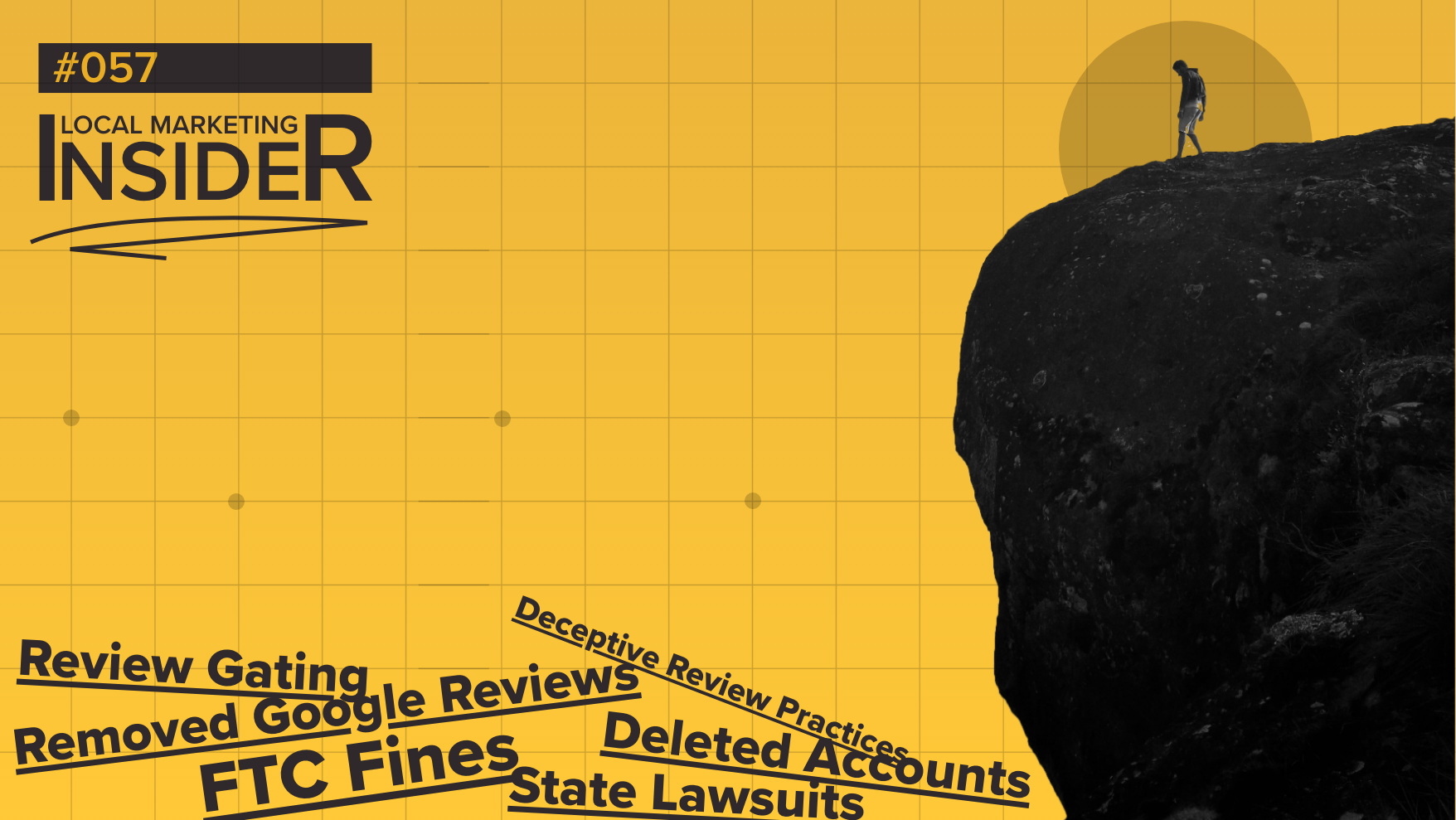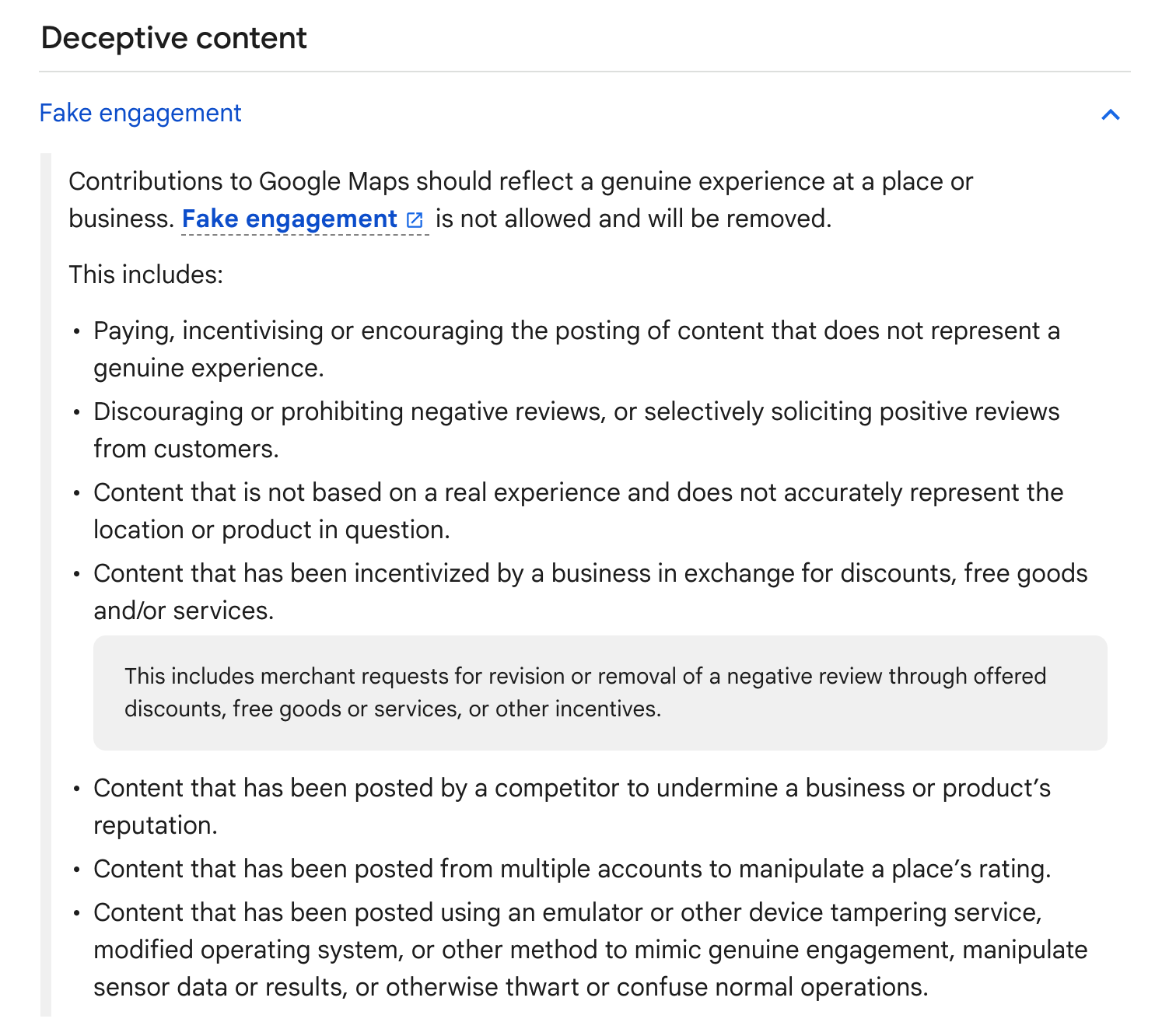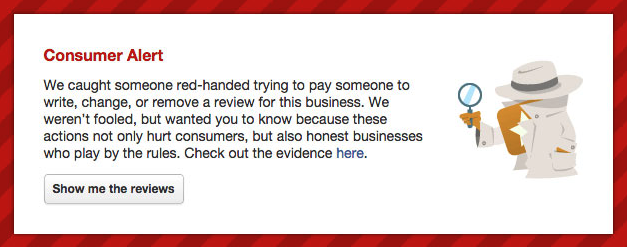- Solutions
- Resources
- Pricing
- Company
The rules you need to know for a risk-free reputation.

Hey! Welcome to Local Marketing Insider where 10,000+ local marketing professionals get better at reputation strategy & more with insights delivered 2x a month.
Read the other articles. Subscribe.
In my experience, there is a wide range of understanding about the rules governing reviews, likely because guidance and enforcement are relatively new.
Deceptive review practices are illegal, falling into the bucket of deceptive or misleading advertising.
The details are laid out in the Consumer Review Fairness Act (2016) and have recently been enforced by the FTC under the direction of Lina Khan.
Today’s article presents steps you can take as a business to eliminate the risk of violating FTC review regulations.
Also, if you haven’t read it yet, check out the previous Insider, The State of Play, for a breakdown of current review trends and why they are useful. It is a top-5 all-time Insider issue for me.
Why Now?
The Consumer Review Fairness Act became law in 2016, but enforcement has notably picked up since Lina Khan became the FTC director in June of 2021.
An initial letter or warning was sent to 700 companies in October of 2021, detailed guidance and best practices were released in January 2022 and the Fashion Nova settlement that I’ll discuss in depth later was announced soon after.
With clear-cut rules and stronger enforcement, businesses now need to be educated and prioritize a no-risk approach to collecting and engaging with reviews.
De-Risking Your Reputation Strategy in 5 Steps
Don’t Gate
You may have heard about this by now, but the most common deceptive review practice is broadly called “gating,” which is when a customer is asked first in an email or text message if they had a good experience. If yes, the customer is directed to a review site. If no, the customer is directed to an internal feedback form.
At face value, this seems like a smart strategy. However, the FTC, and as a result Google, view this as negative review suppression and don’t allow it. It seems to be falling out of fashion due to increased scrutiny, but some reputation companies still offer this and it should be avoided. Keep an eye out.
Risks of Non-Compliance
Loss of reviews or account on Google: If Google suspects your business of deceptive review practices, it will simply delete all of your reviews or even your account. A Google spokesperson is quoted in SearchEngineLand as saying “If we determine that a business is buying fake reviews or violating any other Google My Business policies, we take swift action ranging from removing content to account suspension and revoking Business Profile ownership.”

Fines & Lawsuits: I looked hard and could only find one case (Fashion Nova, $4.2M fine) the FTC has pursued in the last 18 months since the initial warnings were sent out. Fashion Nova suppressed hundreds of thousands of negative reviews. Interestingly, the way in which Fashion Nova suppressed reviews was the misuse of a feature of its review technology, Yotpo. I will explain this more in the next section. Most businesses won’t get the attention of the FTC. But, we’ve also seen similar activity from the Attorney’s General in New York and California pursuing review cases.
Damage to customer trust: Worst-case scenario, Yelp puts a warning banner on your account or a customer leaves a Google review outlining your deceptive practices. This drastically devalues your review content. It’s like Twitter selling blue check mark subscriptions without doing identity verification. What was once a status symbol is now easily scammed and completely unreliable. Yelp puts out a yearly Trust and Safety Report that is worth a read.

The Unique Case of Fashion Nova
The fast-fashion retailer owns all the headlines as the poster child for the FTC’s anti-deceptive review content campaign. Lesser known, Fashion Nova was using a feature, albeit incorrectly, built into its review technology provider, Yotpo.
At the time, Yotpo had a feature that held back negative reviews for review, presumably so the business would be aware of them before the feedback became available publicly.
Fashion Nova simply never approved the negative reviews. It's the sort of situation that could as easily be the result of neglect as it could have been deception.
Yotpo has since updated the feature, posting the reviews after 14 days.
Notably, the brand was ultimately liable, not the technology vendor.
Incentivizing Reviews
The FTC allows incentivizing reviews. It’s deemed an appropriate business tactic. But, it requires a clear admission to the reader that the review was incentivized. This transparency helps the consumer better understand the potential for the reviewer to have alternative motives.
The challenge is that almost all review sites do not allow incentivized reviews and do not provide a means to disclose that a review was incentivized. Because of this, for example, incentivizing reviews effectively removes Google from your strategy.
Further, as a business owner, if you incentivize then you will need to keep track of which reviews were incentivized and which were not.
I can see incentivized reviews working in two cases: on your website where you can build a custom reviews widget or on social media.
Bottom line: Avoid incentivizing reviews. Google needs to be the center of your strategy and it requires non-incentivized reviews. Further, you don’t need to compensate for reviews to generate positive feedback. Widewail customers see significant jumps in review volume and rating just by asking every customer via SMS and making it easy.
I’m the Director of Marketing here at Widewail, as well as a husband and new dad outside the office. I'm in Vermont by way of Boston, where I grew the CarGurus YouTube channel from 0 to 100k subscribers. I love the outdoors and hate to be hot, so I’m doing just fine in the arctic Vermont we call home. Fun fact: I met my wife on the shuttle bus at Baltimore airport. Thanks for reading Widewail’s content!
Bite-sized, to-the-point, trend-driven local marketing stories and tactics.
U3GM Blog Post Comments